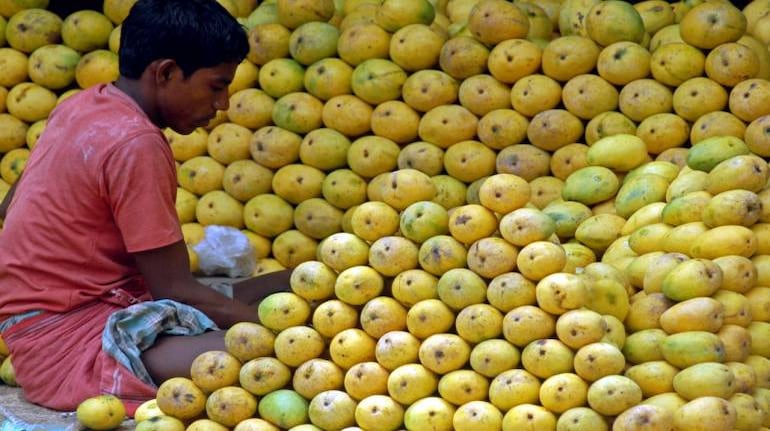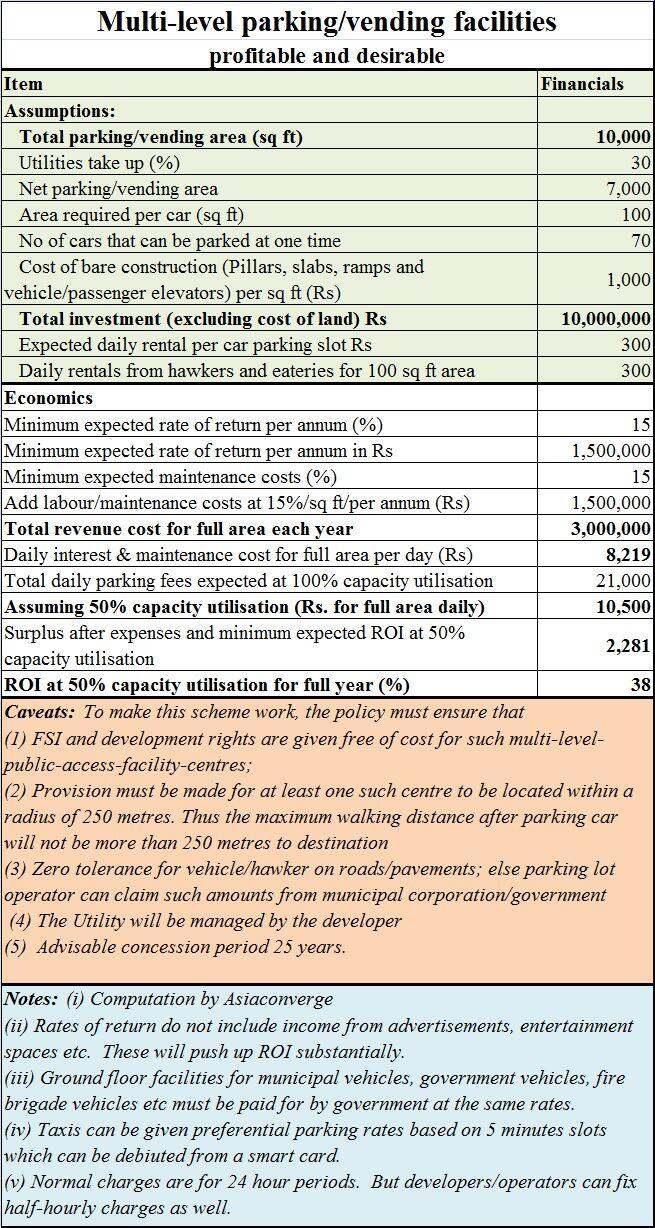



RN Bhaskar
The issue of hawking is up in the air. So is that of illegal parking. The issues are both political and fiscal. Politically, it provides a means to block revenue collections by one political party. Fiscally, it could mean additional revenues of anywhere between Rs 6-20 crore every day from the city of Mumbai alone.

The first issue became volatile when hawkers prevented easy access to station platforms. This got highlighted when the unfortunate deaths at Mumbai’s Elphinstone station took place. A political party has taken up this issue to drive hawkers away from stations. That has hit the daily collections of another party, which has been crying hoarse about the regularisation of hawkers.
The second issue caught the imagination of the public when the police towed away a car ostensibly when a woman was sitting inside feeding her baby .
These columns pointed out how the illegal pickings from illegal parking and blocking of pavements and roadways by hawkers could be at least Rs 6 crore daily. And this does not include revenues from hawkers on railway platforms, on roadside stalls and from handcart pullers.
Graft and illegal parking/vending
The figure may appear preposterous. But illegal hawking (and parking) is a cash cow for any political party that lives on graft.
In January 2013, a hawkers union -- which claimed a strength of more than 1.25 lakh hawkers in Mumbai -- went public with a claim that the police department and the municipal corporation (MCGM) together extort almost Rs 1,000 crore each year from hawkers to allow them to do business. At that time, of the over 4 lakh hawkers in the city, there were only 26,000 licenced ones.
Currently, estimates suggest that there are 14,000 licensed hawkers in Mumbai and around 150,000 unlicensed ones. The BMC has proposed increasing the number of hawkers in Mumbai from 22,097 to 89,797 by creating hawking zones (often on open spaces which will further reduce the number of such spaces in the city.)
On November 22, 2017, the hawkers went public with statements that a bribe of Rs 1.5 crore is paid to the police and the BMC each day to permit illegal hawking. As mentioned above, this is a far cry from this correspondent’s estimates of Rs 6-20 crore per day.
So does Mumbai have to live with graft? Can’t both parking and illegal hawking get legalized? The answer is yes. The solution is simple. But it won’t be accepted, because it will make at least Rs 6 crore of daily illegal picking disappear. There are strong vested interests in keeping hawkers work illegally. Similarly, there are very powerful interests that do not want to solve the problem of illegal parking.
So what’s the solution?
The way out
First, remember that hawkers come on to a place where there are customers. The customers need hawkers because they are convenient to reach. Thus, there is a symbiotic relationship between hawkers and customers. The trick is to provide both an answer without treading on the rights of motorists, pedestrians and children (who need open spaces).
This correspondent believes that – like in most developed countries – the answer could lie in multi-level parking. But given India’s population, and the fact that many do not have cars that need to be parked, the multi-level parking concept needs to be meshed with vending zones for hawkers and for eateries as well.
Typically, a multi-level parking/vending zone should have the following features:
Yes. It is profitable. The developer can expect a return on capital (excluding land costs) of a minimum of 38 percent. And this does not include money from advertisements, display windows, catering for parties etc.
As the table alongside shows, the maximum area each car would occupy is around 100 square feet. That would allow the car to manouvre itself into the slot, or exit from the place. Moreover, we have assumed that 30 percent of the floor space is kept free for pathways and utilities (elevators, stairs etc).
You can work the numbers yourselves. Just assume a 50 percent capacity utilization, and you will discover that the profits can be substantial.
But the bigger benefit is a more liveable city, with fewer congested roads. Thus if a woman wants to sit in her car and feed her baby, she can go to a parking lot and feed the baby there. You want to rush to the toilet or have a bite? Just park your car, go to a cafeteria, or to the toilet in the same building.
Electronic gates and access control systems with CCTVs could reduce cost and improve efficiency.
And, more importantly, it brings all the graft money into the taxable domain, leaving the police with more time to focus on law and order, and not just looking for ways to make a quick buck.
Preconditions
This system can work only if a few conditions are observed.
What is more, developers can maximize their profits by adding floors on which they can have marriage halls, and even offices. But the ratio of offices and vending to parking should not fall to less than 50 percent for parking. This ensures that the building remains a place for parking (and vending), and does become a cinema multiplex or some other recreational centre.
Such an approach will give the government several advantages.
It will be able to bring at least Rs 6 crore (or more) per day of sleaze money into the taxable and legal domain. The multiplicity of such centres will ensure that hawkers will be willing to pay higher rentals in premium areas, and lower rentals in non-premier areas. The sheer numbers of parking multiplexes will also ensure that no developer enjoys a monopoly. And the competition will compel developers to offer better services and opportunities.
Thus, instead of letting hawkers occupy existing open spaces, the government should allow for more parking-cum-hawking multiplexes. Developers will be happy. So will motorists and pedestrians. The incidence of graft will then reduce. It will be in keeping with the government’s much touted claim that it wants to reduce corruption. The combination of eateries, vendors, and car parks will make life simpler and cleaner for everyone.
(The author is consulting editor with Moneycontrol)
Discover the latest Business News, Sensex, and Nifty updates. Obtain Personal Finance insights, tax queries, and expert opinions on Moneycontrol or download the Moneycontrol App to stay updated!
Find the best of Al News in one place, specially curated for you every weekend.
Stay on top of the latest tech trends and biggest startup news.